The best and the worst of being a tattoo professional
What is it like to be a tattoo artist?
22 May 2023
The profession of tattooing is equally challenging and exciting. Many people may perceive it as simple and liberating, but in real life, it's not quite like that. In fact, it entails various limitations and difficulties both in the learning process and in the actual practice.
To be honest, this trade does have its drawbacks. However, that doesn't diminish the fact that it also offers numerous benefits.
It is a rewarding yet demanding field; a genuine journey filled with both triumphs and obstacles. Therefore, it is sensible to learn from the experiences of those who have already ventured into the art of tattooing to prepare oneself for effectively managing it.
So, pay close attention as we delve into the details. Let's go!
9 ADVANTAGES AND DISADVANTAGES OF THE TATTOOING PROFESSION
PRO 1: Artistic vocational development
For any enthusiast of illustration and art in general, the tattoo profession can provide a highly fulfilling vocational path since tattooing, as an art form and business, offers you a creatively free and permissive job opportunity.
Being able to generate income from one's artistic skills is a path of self-fulfilment.
In the end, being able to work on what we are passionate about is incredibly enriching, to the point where it may not even feel like work. Being paid for hours spent drawing, creating, and bringing one's artwork to life is truly priceless.
Generally, making a living from art is not easy, but tattooing can serve as a means to achieve it.
CON 1: Criticism and detachment from your work
Exposing your work to the world can leave you feeling vulnerable and insecure, as it opens you up to external criticism. From the person wearing the tattoo to their friends, family, or even social media followers, your work is subject to judgment.
It's important to remember that your work will inevitably be judged, and it's crucial to learn how to manage it positively.
People will have opinions, and as tattoo artists, we should accept constructive criticism as an opportunity to refine our skills.
Additionally, it's important to note that you will have to say goodbye to each new creation you make. Once you finish the tattoo and the person leaves the studio, you must detach yourself from the piece and understand that you may not see it again on their final canvas, except perhaps in photographs.
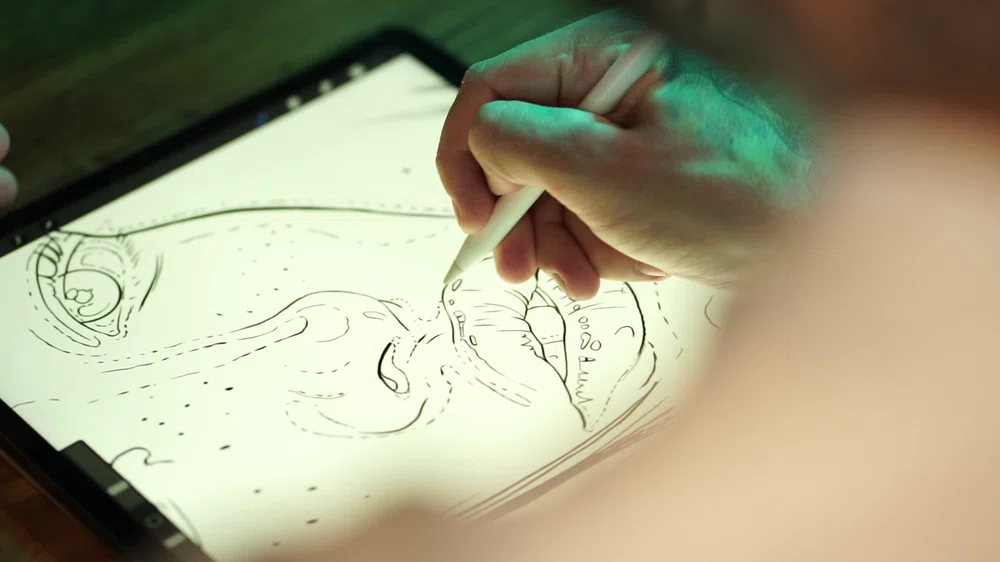
PRO 2: Tattooing is within your reach
It is true that anyone can learn to tattoo, and it is not necessary to pursue traditional academic studies to acquire the knowledge. So, you can start your training as soon as you want.
With a comprehensive step-by-step guide from experienced professionals who have firsthand knowledge of the trade, combined with adequate technical and methodological information, one can receive proper training in tattooing.
Fortunately, access to essential training for aspiring tattoo professionals has become more accessible today. Previously, it was a more exclusive industry, and becoming a part of it could be a more challenging path. However, nowadays, you can learn the theory remotely, allowing you to learn from different artists worldwide.
Of course, hands-on practice remains crucial and indispensable. This aspect has not changed. While being an apprentice in a studio is still a popular choice, it is no longer the only available method, and setting up your training is now more accessible.
CON 2: Tattooing well is not easy
Mastering the art of tattooing goes beyond simply knowing how to perform the technique; it involves achieving professional results. Which can only be accomplished through continuous practice.
Like any art form, tattooing is subjective and can be practiced using several methods and techniques. Additionally, numerous external factors come into play, making the outcome unpredictable and challenging to achieve perfection.
Each individual's skin is different, thus adding another layer of complexity.
Furthermore, the abundance of educational resources in the field has led to a saturation of information, making it difficult to discern reliable sources. While there are many high-quality training courses offered by professional artists, not all of them are validated, making it challenging to evaluate the information provided.
In other words, there is still a need for further standardization, which has both positive and negative aspects, resulting in a slow learning curve.
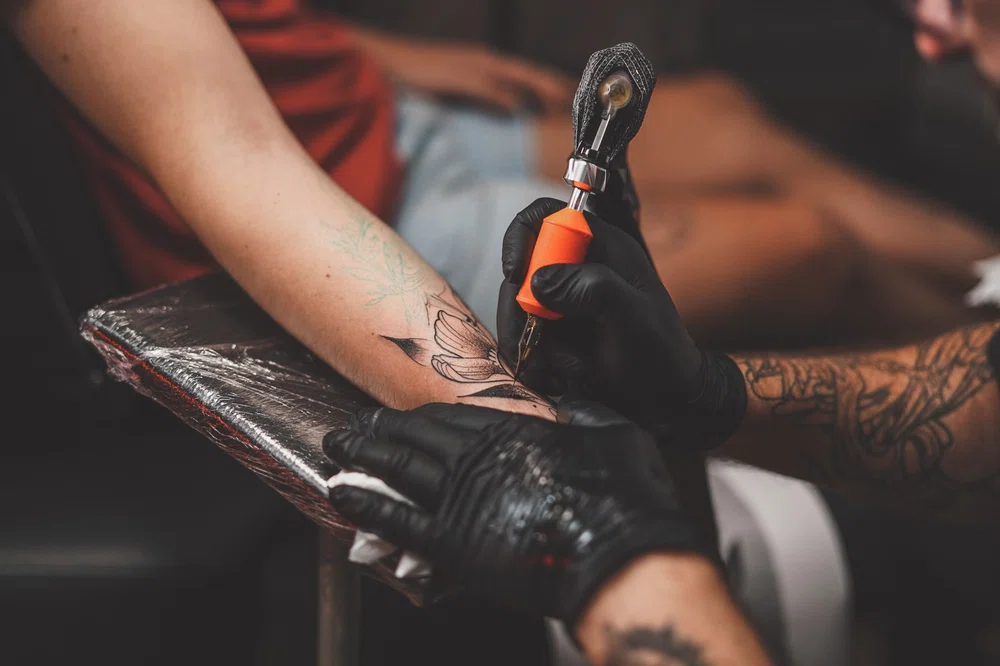
CON 3: Possible hostile enviroment
Furthermore, the tattoo industry can sometimes feel competitive and hermetic. This aspect is rarely discussed, but ego can negatively influence both those who are still on their learning journey and those who have just entered the field. Moreover, not all experienced tattoo artists are willing to share their knowledge and experiences with others.
This dynamic can sometimes lead to demotivation among new generations and hinder the overall progress of the industry.
Additionally, as the profession continues to grow each day, standing out from the crowd becomes a significant challenge. As a result, in the face of numerous available options, potential clients often compare and perceive tattoos as something that can be negotiated.
One effective way to demonstrate the value of your work is by breaking down the costs and explaining everything that goes into creating a tattoo. This includes your training, the quality materials used, and the wealth of experience you bring. To learn more, read our post about how to calculate your salary as a tattoo artist.
PRO 3: Community and social support
Even so, there is also considerable support between tattoo professionals; from sharing knowledge and experiences to collaborating among artists.
As a significant part of learning is purely empirical, it's why it has always been the style to be an apprentice to absorb as much as possible from the experience of others. It is the best way to learn.
And now also, thanks to the digital world and social networks, more and more exclusive content for tattoo artists is being created, where not only tricks and methods are revealed but also reflections, personal concerns and motivational solutions are shared.
A great example of this is our Instagram, have you already stopped by?
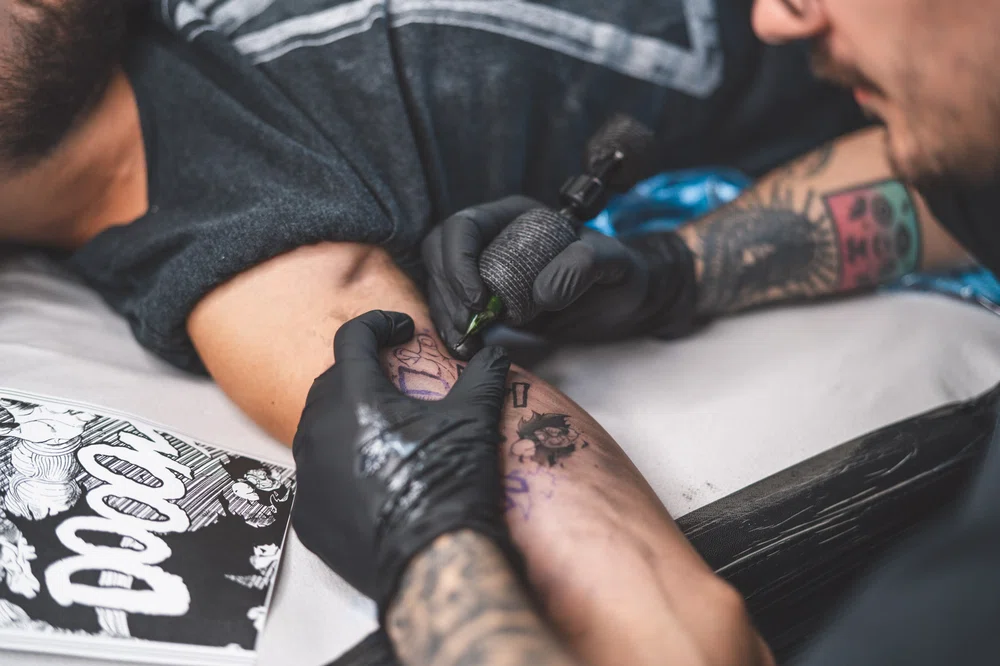
PRO 4: Personal and economic freedom
Working as a freelance tattoo artist has its advantages, such as being your own boss and having control over your schedule.
One of the benefits is the flexibility in setting your working hours. You can often choose them according to your preferences, without conforming to a standard office schedule. Even when sharing a studio with other artists, you still maintain your own independent shift agenda.
Another advantage is the ability to choose your vacations and take time off for important dates or personal obligations without having to provide detailed explanations. Of course, it is essential to inform your clients in advance about your availability.
Furthermore, as a tattoo artist, you have the freedom to express your personal style and aesthetics. There is no need to adhere to uniforms or wear ties. You can showcase your individuality, whether it's through painted nails or proudly displaying your own tattoos.
CON 4: Overload and economic instability
Unfortunately, being self-employed or working as a freelance tattoo artist has its challenges, and managing your own billing and finances has its downsides as well.
In certain countries, the governmental conditions may be favorable for self-employed individuals, while in others, they may not be as supportive. Additionally, there are often no paid vacations or social coverage, which means you need to plan and save for time off.
The workload can be demanding, particularly when you're starting out or when you take on numerous assignments with tight deadlines, leading to overworking. It may also be necessary to work on weekends and nights, as those are typically the times when clients are available.
Economically, there is an initial investment required, and in the long run, you need to consistently restock your materials and supplies.
Furthermore, as an apprentice in a studio, the focus is often on gaining experience rather than earning a significant income. This often requires having a parallel job to support oneself financially.
Additionally, it's worth noting that a full schedule of clients is not always guaranteed, and there may be periods when commissions tend to decrease, leading to a decline in income. The best you can do to avoid getting frustrated during these periods is to slow seasons productively.
In short, the financial freedom that this job offers you requires good organization and administration.
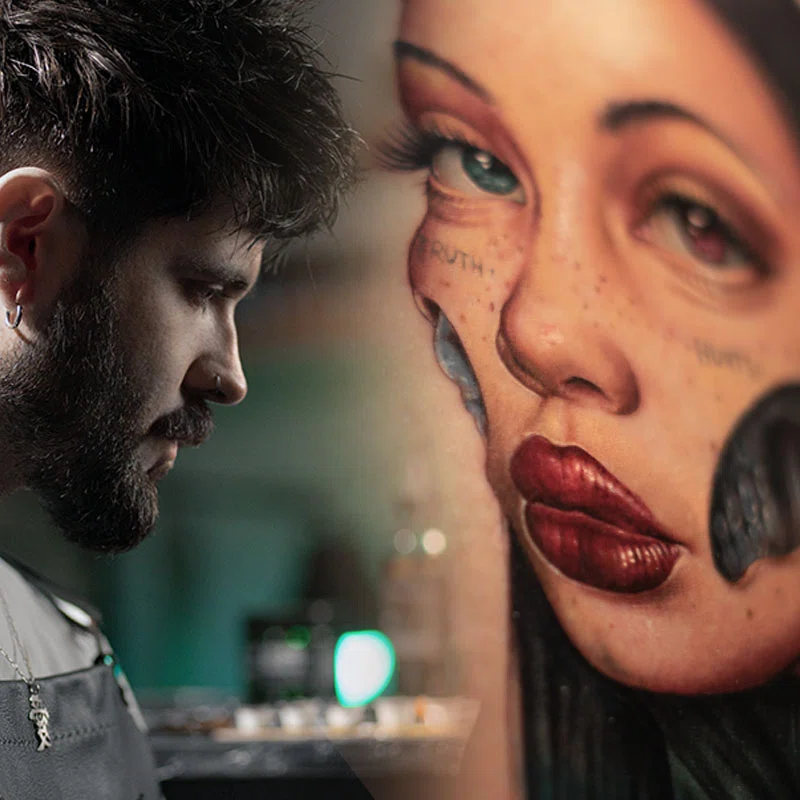
PRO 5: High demand and good income possibility.
Indeed, the tattoo profession offers economic possibilities that can surpass those of many other trades.
While it may not be achieved overnight, with good performance, a stable client base, and effective financial management, you can potentially earn a high income compared to other jobs, as there is no predefined earning ceiling.
Furthermore, when starting out, you don't necessarily need the most expensive equipment or top-of-the-line products. You can adapt to your budget and gradually invest in tools and materials over time as your business grows.
Ultimately, tattooing is a business, and as such, it requires an entrepreneurial mindset, decisiveness, and adaptability. Mastering these qualities can make the difference between having a hobby and creating a profitable livelihood.
Despite the challenges, the tattoo profession is highly regarded and offers good job prospects. Moreover, tattoos are becoming increasingly socially accepted. Once you secure your first clients, momentum builds, and the path ahead becomes clearer.
Did you know...?
According to a study conducted by Fortune Business Insights, the global tattoo market was valued at USD 1.75 billion in 2021, while predicting that the market experiences substantial growth, reaching USD 3.55 billion by 2029.

Another study conducted by Dalia Research in 2018 reflected that (only) in the United States, 36% of the population between 18 and 29 years old has tattoos. Additionally, 72% of adults have tattoos typically concealed by their clothing.
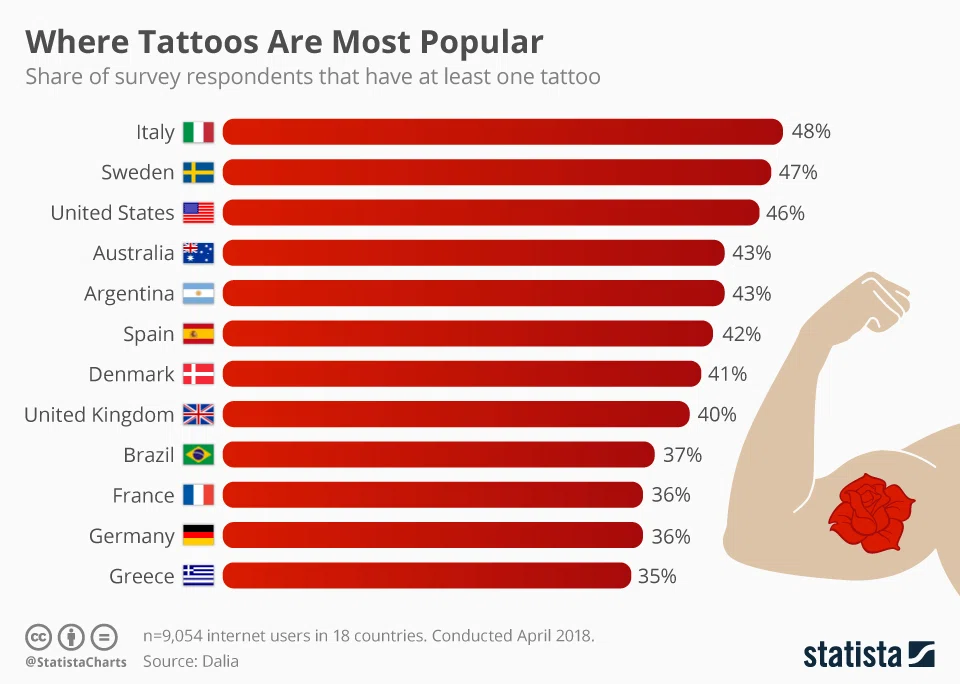
CON 5: Physical demand
Both the back and the hands, as well as other joints, can experience daily strain if proper precautions are not taken in the tattooing profession.
While it may not be widely discussed, every tattoo artist can attest to the physical challenges they face, such as demanding hand movements, adopting unfavourable postures, and straining their eyes for prolonged periods. These issues come with the nature of the job, but they can be mitigated with proper warm-up exercises and rehabilitation techniques.
Ultimately, like any sedentary occupation, the toll on the body becomes evident over time, even if it may not be apparent initially. This is one of the primary reasons why some individuals are compelled to leave the profession as they age.
Additionally, working in close contact with clients, handling sharp objects, and being susceptible to cross-contamination requires taking specific precautions to ensure both the artist's and the client's safety.
That is why it is so important to learn about hygiene to be able to tattoo safely.
In any case, the working conditions in the tattoo industry are generally considered optimal, providing a sheltered, calm, and safe environment, unlike many other fields.

CON 6: Dealing with customers
Customer service can be complex and challenging at times.
Some customers may attempt to negotiate prices, while others may be indecisive or easily distracted, whether due to unpleasant odours or inappropriate behaviour. The reality is that dealing with people, especially when inflicting pain for hours during a tattoo session, is not always easy.
Interacting with individuals is an experience that can vary between positive and negative. It's essential to remember that managing customer interactions is not solely within your control.
Still, it's your responsibility to give the best possible customer service and maintain a professional attitude, regardless of any inconveniences that may arise. The best way to address this issue is by having well-established rules for the tattooing process, ensuring informed consent from the clients.
And patience, a lot!
PRO 6: Connect with people
If you are a sociable and outgoing person who enjoys meeting new people, chances are you will thoroughly enjoy the experience of tattooing.
Throughout your career, you'll have the opportunity to interact with clients and colleagues, spend hours together, listen to intriguing anecdotes, share experiences, and build enriching relationships.
Additionally, one advantage is that you have the autonomy to choose with whom you work. As a tattoo artist, you are entitled to decline to work with a client for any reason. This freedom is one of the benefits of being self-employed, as you have the authority to make decisions that align with your values and preferences.

PRO 7: Spontaneity and new experiencies
A day in the life of a tattoo professional is never the same as the next. So, you can say goodbye to routines.
Although there are some processes that may be repeated, working as a tattoo professional is far from being a mechanized and repetitive job where every minute is predetermined.
In a tattoo studio, each commission is different, and every client is an individual with unique preferences and requests. This creates a spontaneous and diverse work environment where you never know what exciting experiences await.
Moreover, for those who enjoy travelling and exploring new places, there are interesting opportunities in the tattoo industry.
This includes possibly doing guest spots in other studios, working abroad for a season, collaborating with fellow artists, participating in events, and more. Such opportunities allow for new experiences and cultural exchanges within the tattoo community.
CON 7: Many variable factors
It is not the same to capture your art on a canvas as on a person, where circumstances change and the behaviour of the skin varies when tattooing.
In the end, as a tattoo professional, you are working with a living being, and their reactions can be unpredictable. So, it is crucial to possess excellent adaptability and the ability to make on-the-spot decisions.
To sum up, tattooing is a highly demanding occupation, that requires technical and methodological expertise. No matter how much you practice, there will always be surprises along the way. Therefore, it is wise to be prepared.
CON 8: Depending on social networks
Social networks have numerous advantages and applications, but it is crucial to use them wisely to avoid them becoming a double-edged sword that can impact both your own perception and the perception of others.
The key is to harness their benefits without allowing them to hinder your work.
Therefore, it is important to use social media consciously, being mindful of not comparing yourself to others and not solely focusing on likes or followers. While these metrics can be useful, they should not be the sole determining factor of your worth or success.
PRO 8: Benefit from social networks
On the other hand, the influence of social networks is undeniably significant, as they can be used to attract clients in ways that were previously only possible through in-person interactions or word of mouth.
The digital world and globalization have provided us with the opportunity to expand our network of contacts and gain recognition beyond our immediate circle. Additionally, it is now incredibly easy to showcase and share our work freely through online platforms. This has opened up new avenues for exposure and promotion.
The key lies in employing social media platforms with a strategic and coherent approach while maintaining perseverance in your efforts.
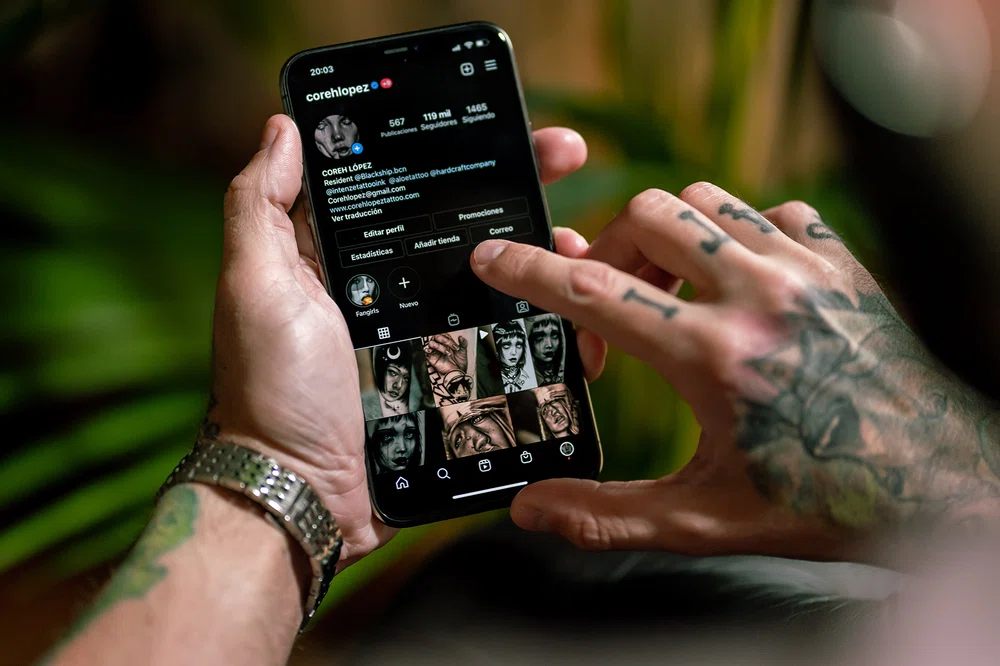
CON 9: Work and social pressure
The responsibility and pressure of permanently marking someone's skin are undeniable aspects of tattooing.
The truth is that it can be intimidating, as the potential to cause harm to someone's skin exists, which not only affects your performance but can also lead to anxiety and frustration.
To put it bluntly, it's important to acknowledge that you will make mistakes at times. It's part of the learning process and crucial for professional growth.
In fact, it's through mistakes that you can gain the most valuable insights and learn what areas need improvement.
There may also be a certain level of social pressure, not only to perform well but also to gain recognition. However, it's critical not to be distracted by aspects that do not contribute to your personal growth. As long as you observe your own progress and strive for continuous improvement, external validation becomes unnecessary.
Patience, passion, and perseverance are key in order to avoid burnout and the temptation to give up.
PRO 9: Personal gratification
Indeed, behind the challenges of the tattooing profession lies great personal satisfaction.
Firstly, there is the adrenaline rush that accompanies the process of tattooing. Creating art on someone's skin can be exhilarating and invigorating.
Secondly, the indescribable feeling of seeing a client genuinely excited and appreciative of the tattoo you have just completed is incredibly rewarding. Witnessing their joy and gratitude as they look in the mirror is the best validation of your hard work.
Additionally, experiencing your own progress and growth as a tattoo artist is a source of personal fulfilment. Comparing your previous works with your latest creations and observing your evolution is a tangible reminder of your dedication and improvement. The journey of self-improvement not only enriches you personally, but also enhances your professional skills.
Besides, tattooing can also be very therapeutic, either because, you can find it relaxing or meditative; or for what the other person may feel. Many people find refuge in the tattoo, so you may be contributing to their personal growth.

In short, a tattoo can have a sentimental connotation and lead you to experience different emotions.
SHOULD YOU DEDICATE TO PROFESSIONAL TATTOOING?
We have presented both the advantages and disadvantages of pursuing tattooing as a profession. Whether you have discovered something new or reinforced and existing knowledge, we may have got to the same conclusion, a genuine passion for tattooing is essential to thrive in this field.
These numerous arguments illustrate that tattooing is a marathon, not a sprint. It demands dedication, sacrifices, and becomes a significant part of your life. Nevertheless, it can also be incredibly rewarding, motivating, and fulfilling.
Ultimately, whether pursuing professional tattooing is the right choice is a question only you can answer. No one knows your personal aspirations better than you.
If you are already embarking on this rewarding challenge, feel excited, truly enjoy tattooing, and believe you can give it your all, then you are undoubtedly on the right path. So, keep pushing forward and continue to pursue your passion with enthusiasm!
You simply continue training, expanding your knowledge, practising as much as possible, and testing yourself to continue levelling up as a tattoo professional.